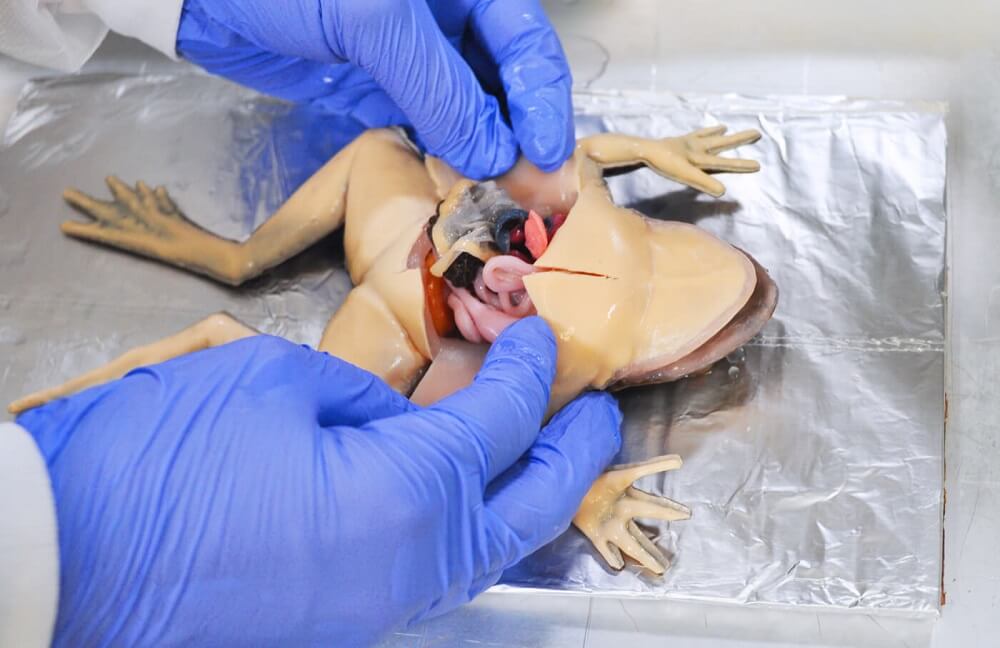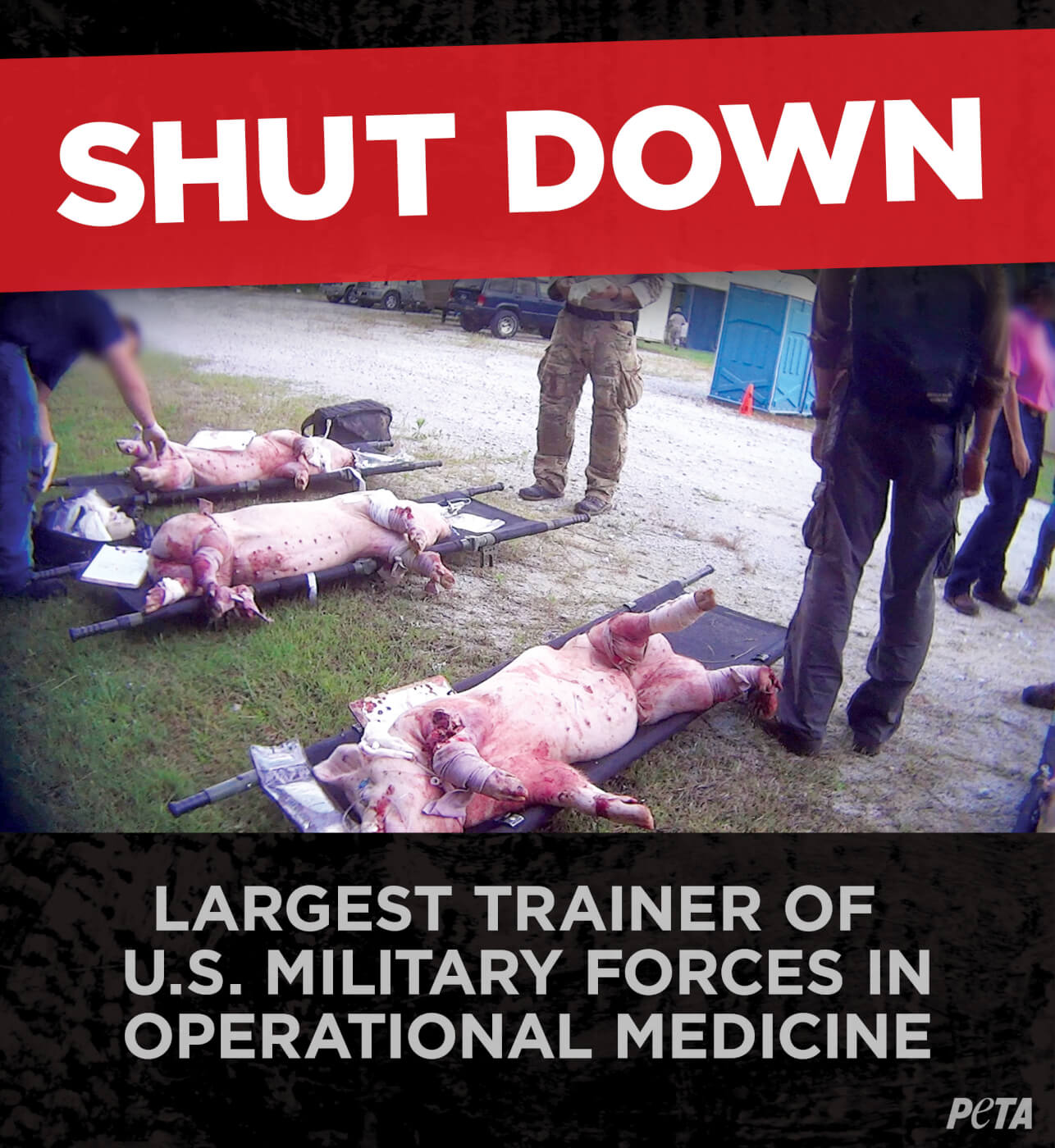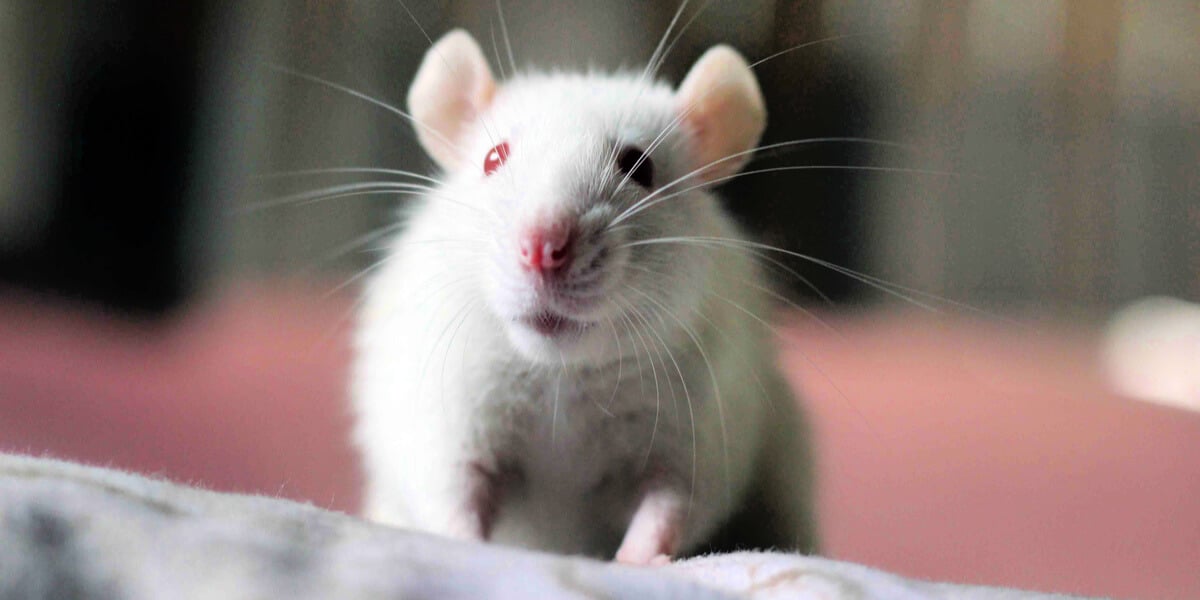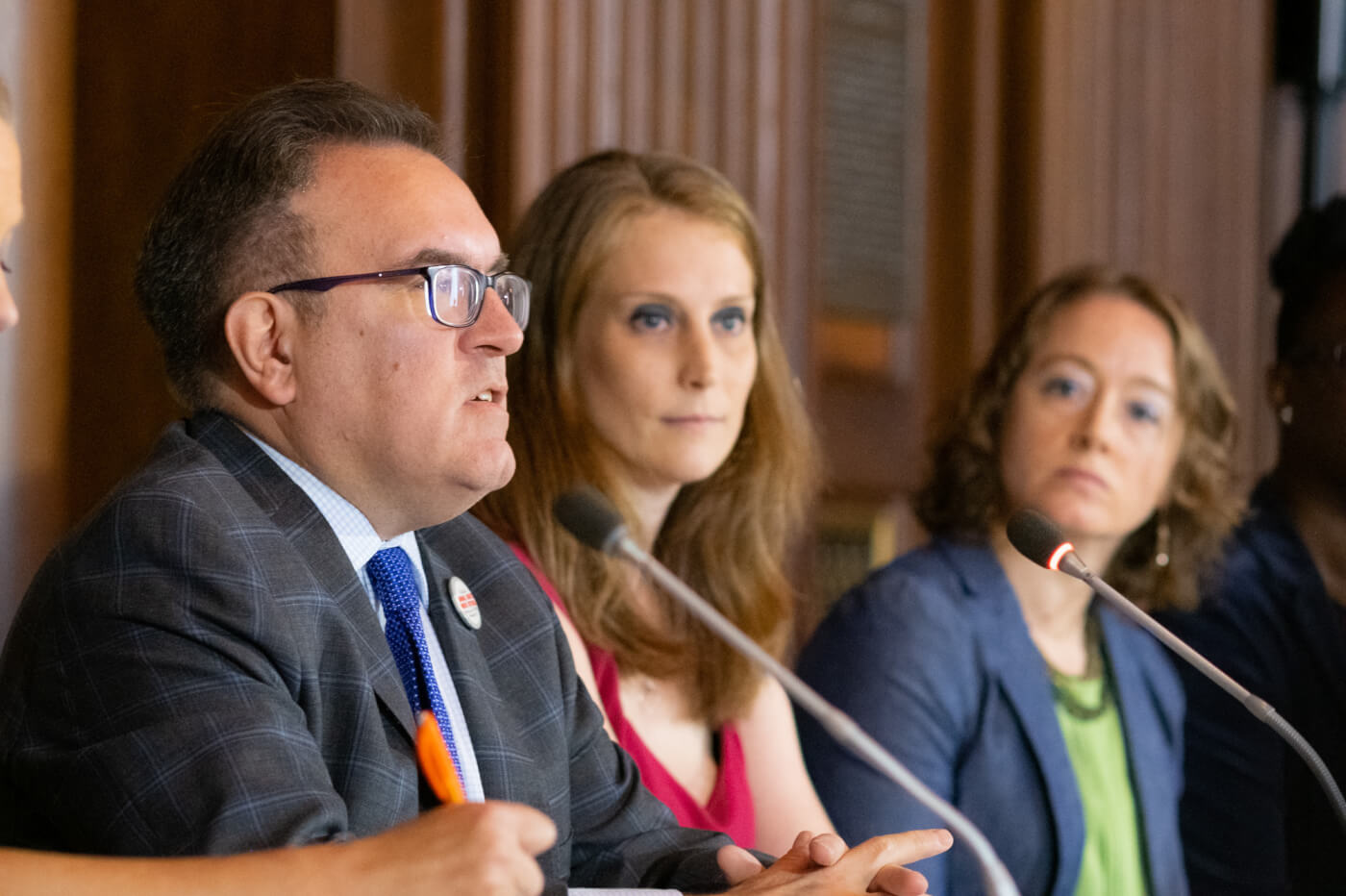How Does PETA End Animal Tests? Just Read Our 2019 Recap to Find Out
In the past year, PETA led numerous successful campaigns against animal experiments that prevented millions of living individuals from being mutilated, force-fed drugs, nearly drowned, and tormented in other awful ways before being killed.
Here are just some of the victories from 2019:
Countless animals won’t be subjected to a terrifying drowning simulation.
What would drive any company to force animals to swim until they nearly drown? Your guess is as good as ours. The forced swim test is proven nonsense. PETA scientists persuaded numerous companies—including Bayer, Pfizer, Sage Therapeutics, Boehringer Ingelheim, Johnson & Johnson, Roche, AstraZeneca, and AbbVie Inc.—to ban the cruel, worthless experiment.
We revolutionized classroom dissection.
PETA teamed up with SynDaver—the world’s leading manufacturer of hyper-realistic, synthetic human and animal surgical models—to create a groundbreaking simulated whole-body frog model. The SynFrog is a realistic and detailed frog body with removable, anatomically correct organs that can replace the use of real frogs in classroom dissection exercises.

This huge technological advance will spare millions of animals’ lives each year, improve students’ learning, and eliminate their exposure to toxic chemicals.
PETA’s unrelenting pressure led to the end of breeding dogs for muscular dystrophy experiments at Texas A&M University.
Following intense pressure from PETA, 500 physicians, many scientists, a number of celebrities, muscular dystrophy patients, and hundreds of thousands of activists, Texas A&M University stopped breeding dogs to develop canine muscular dystrophy in its useless effort to find a cure for humans with the crippling disease. No longer will puppies at the school be born into imprisonment and doomed to die shortly after birth or spend a lifetime suffering from painful, debilitating symptoms.

Keep the pressure on Texas A&M until the dogs who remain in the university’s lab are released into good homes.
An animal-abusing alleged sexual predator we had exposed shut down his companies.
John Hagmann—the alleged sexual predator who developed the Department of Defense’s cruel trauma training program in which pigs and goats were stabbed and shot—shut down his companies that had provided this cruel and useless training.

This comes after a 2015 PETA exposé revealed that Hagmann’s instructors were cutting into live pigs who had been shot to induce bleeding, as well as making racist, sexual, and homophobic remarks. That same year, PETA also uncovered previously unreleased documents revealing that the Virginia Board of Medicine had suspended Hagmann’s medical license for allegedly physically and sexually assaulting military service members, as well as drugging them, during his courses.
We persuaded Pernod Ricard, Kellogg, and dozens of other food or beverage companies to stop experimenting on animals.
After discussions with PETA, many companies implemented new policies in 2019 that banned experimenting on animals to make dubious health claims about various food ingredients. Many experiments involved injecting terrified animals with chemicals and other carcinogens. In other tests, mice were starved or their brains were exposed. The animals were always killed in the end. These new policies are sure to spare countless animals from torment and an agonizing death.

Doctors used live cats at this children’s hospital for decades—but not anymore.
A whistleblower reported to PETA that during the annual Pediatric Flexible Bronchoscopy Postgraduate Course taught at the Cincinnati Children’s Hospital Medical Center, physicians inserted cables into the throats and lungs of hundreds of live cats in an attempt to practice the way to perform this medical procedure on human patients, despite the drastic anatomical differences between the two species.

This procedure can cause painful and serious complications in the cats subjected to it, including respiratory distress, cardiac arrest, and even death. We immediately contacted the medical center, and after hearing from PETA, the hospital quickly confirmed that it “will no longer use animals” in these training exercises.
Aussie, Herbal Essences, Dove, and many other brands now carry PETA’s cruelty-free bunny logo.
Aussie, Herbal Essences, Dove, and other big names in cosmetics—like the L’Oréal-owned brand Dermablend Professional—became a part of the PETA Beauty Without Bunnies program. More than 4,000 companies are now featured on our “cruelty-free” list!

Our work in China—yes, CHINA—made huge strides against animal testing.
China—where cruel and deadly tests on animals are still required for many cosmetics and personal-care products—is possibly the most notorious country when it comes to tormenting and killing animals in laboratories. But after years of pressure from PETA, the Institute for In Vitro Sciences, and some cosmetics companies, the Chinese government approved two more non-animal methods for testing cosmetics products there. The two newly approved tests will spare countless animals the pain of caustic substances being applied to their eyes and rubbed onto their sensitive skin.

We also worked directly with Avon Products, Inc., and we were delighted when the company announced that it had stopped all tests on animals everywhere in the world and is now working to stop testing on animals in its supply chain. The company has officially been added to PETA’s “Working for Regulatory Change” list.
PETA’s teddy bear ad moved millions and even picked up a Telly Award.
PETA released a nongraphic ad—created by Christian Carl and Justin Ebert in conjunction with Ray Productions—featuring a teddy bear in a role inspired by the many millions of animals imprisoned in laboratories. The toy bear is taken to a laboratory, where it’s strapped down, injected with chemicals, cut open, killed, and discarded like trash. Our compelling video ad blew up on social media, appeared on TV stations near major animal-testing facilities, and won a Telly Award.
PETA’s decades of work paid off as U.S. Environmental Protection Agency made a breakthrough decision to end toxicity tests on mammals.
After almost 20 years of work by PETA scientists, the EPA announced that it will stop funding and requesting tests on mammals by 2035, which will prevent countless animals from being poisoned in cruel chemical tests.

*****
When it comes to feeling joy, cherishing life, and experiencing pain, other animals are just like us. So imagine the hellish reality that millions of them experience every day inside laboratories.
Please click on the link below and take a stand against animal testing today:

